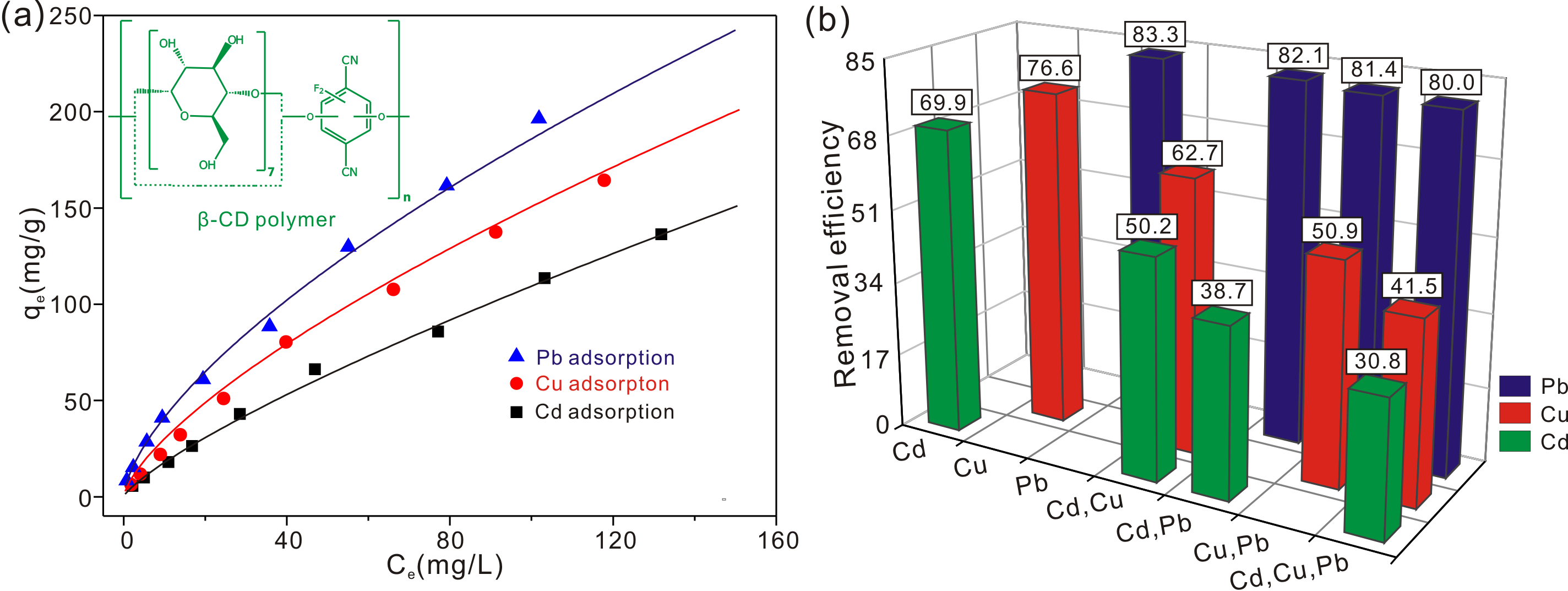LIU Jinhuai and KONG Lingtao’s joint team of Institute of Intelligent Machines, Hefei Institutes of Physical Science, successfully prepared a new kind of adsorbent to obtain rapid removal of heavy metals from drinking water.
Removing heavy metals from aqueous solutions has drawn more and more attention these years because of their serious global health challenge to human society. To solve the heavy metal pollutions, it is of great significance to develop robust and effective purification processes of waste waters contaminated by heavy metals.
In fact, a mass of water treatment technologies have been developed and utilized to remove heavy metals, among which, adsorption is a safe method with high effectiveness and low cost.
However, there were still some problems unresolved associated with their applications, of which the most serious one is the low adsorption rate since most of the adsorbents needed a long time to get equilibrium.
Thus, it highly calls for adsorbents with high adsorption rate at present.
In their work, β-cyclodextrin (β-CD) polymers crosslinked with rigid aromatic groups were prepared and used for lead (Pb), copper (Cu) and cadmium (Cd) removal for the first time.
The negatively charged β-CD polymers with large BET surface area were suitable to be used in heavy metal adsorption. The adsorption process was completed in 5 min, which was much faster than most of the adsorbents. The maximum of adsorption capacities at 25 oC for Pb, Cu and Cd were 196.42, 164.43 and 136.43 mg/g when the initial concentration was 200 mg/L.
The adsorption process on the surface of β-CD polymer was an endothermic and spontaneous process. Both of the electrostatic interaction and distribution of Pb, Cu and Cd species influenced the adsorption process at different pH values.
The order of removal efficiencies in multi-component adsorption for the three metal ions were Pb > Cu > Cd. The adsorption mechanisms were H+ ions on hydroxyl groups exchanged with heavy metal ions and electrostatic interactions.
These results demonstrated that the β-CD polymers could be developed into effective adsorbents for rapid removal of heavy metals. Meanwhile, this work is meaningful to achieve rapid removal of heavy metals in the later works.
This work was supported by the National Key Scientific Program-Nanoscience and Nanotechnology (Grant No.2011CB933700), the CASHIPS Director's Fund (Grant No.YZJJ201617), the National Natural Science Foundation of China (21177131, 61273066, 11205204, 21105001, 21077106, and 61104205).
Link to the paper: Rapid adsorption of Pb, Cu and Cd from aqueous solutions by β-cyclodextrin polymers.

The single-component (a) and multi-component (b) adsorption behavior of β-cyclodextrin polymers for Pb, Cu and Cd. (Image by HE Junyong)
Contact:
KONG Lingtao
Institute of Intelligent Machines (http://www.iim.cas.cn/)
Tel: 86-551-6559-2420
E-mail address: ltkong@iim.ac.cn
 Tel: +86-551-65591206
Tel: +86-551-65591206
 Fax: +86-551-65591270
Fax: +86-551-65591270
 Emai: zhous@hfcas.ac.cn
Emai: zhous@hfcas.ac.cn
 350 Shushanhu Road
350 Shushanhu Road